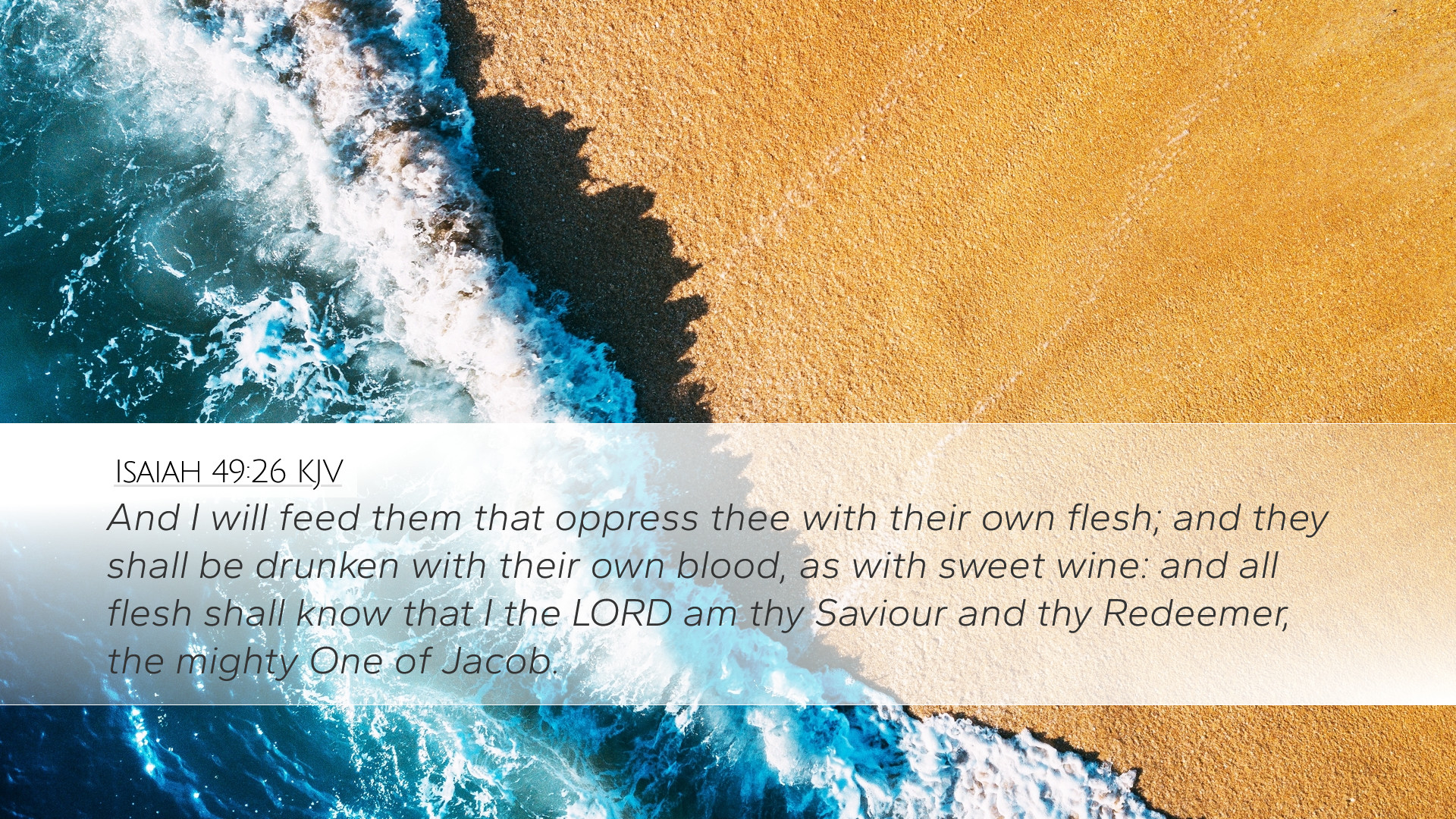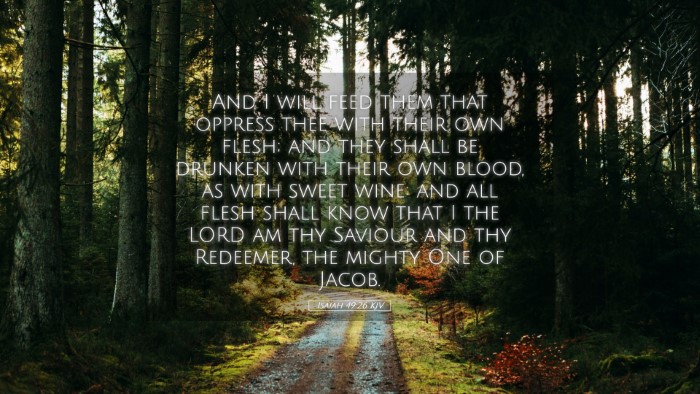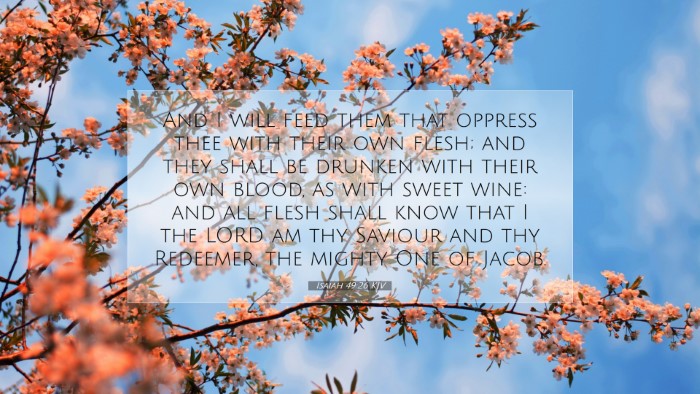Commentary on Isaiah 49:26
Isaiah 49:26 states, "And I will feed those who oppress you with their own flesh, and they shall be drunk with their own blood as with sweet wine." This profound verse outlines God's promise of justice for His people and highlights the themes of retribution and restoration that permeate the larger context of Isaiah's prophetic message.
Contextual Overview
Isaiah 49 is a chapter that underscores the role of Israel as God's servant, called to bring salvation not just to the Jews, but to the Gentiles as well. The previous verses speak to God's unyielding commitment to His people, despite their recurrent disobedience and exile. The promise of vindication for those who oppress Israel is central to understanding verse 26.
Theological Insights
This verse encapsulates key theological themes pertinent for pastors and theologians:
- Divine Justice: The idea that oppressors will be punished by their own actions serves as a crucial reminder that God is a righteous judge. Matthew Henry states that God will turn the unjust machinations of the oppressors against themselves, delivering a poetic justice that reaffirms His sovereignty.
- Redemptive Retribution: God's plan often encompasses not merely punishment for the wicked, but also restoration for the oppressed. Adam Clarke notes that God's actions in this verse signify not just vengeance, but a broader narrative of redemption where the oppressed see their suffering transformed into victory.
- Symbolism of Consumption: The imagery of the oppressors being fed with their own flesh suggests a flipping of roles where those who once caused harm will experience the consequences of their actions. Albert Barnes emphasizes that this can be viewed as both a literal and spiritual punishment, where moral and ethical failures result in dire consequences.
Historical Context
The passage reflects the historical reality of Israel's oppression under various empires, particularly Babylonian subjugation. In historical terms, this verse promises that those who have been instruments of suffering will themselves be subject to suffering, a theme echoed throughout the Old Testament.
Also, reflecting on the broader context of Isaiah, we see that this prophetic utterance aims to instill hope among the exiled Israelites, assuring them that their tribulations will not be forgotten by God. The Lord’s promise is particularly poignant for contemporary readers facing their own forms of injustice.
Pastoral Application
For pastors, Isaiah 49:26 can serve as a comforting message to congregations facing trials. The assurance that God sees their struggles and will bring about justice can encourage those who feel marginalized or oppressed. This passage can be utilized to:
- Encourage Faith: Remind the congregation of God's faithfulness in times of oppression and suffering.
- Promote Justice: Use this verse to call the church to stand against injustices in society, following God's example of advocating for the oppressed.
- Foster Hope: Instill hope that God will bring vindication in His time, which can be particularly powerful in situations where injustice appears to thrive.
Conclusion
Isaiah 49:26 stands as a powerful testament to God’s ultimate authority over oppression and His commitment to justice. Theologically rich and deeply rooted in historical realities, this verse offers profound implications for understanding God’s character and His interactions with humanity through the ages. Pastors, students, theologians, and scholars alike can draw from the insights of revered commentaries to deepen their understanding and application of this poignant scripture.


